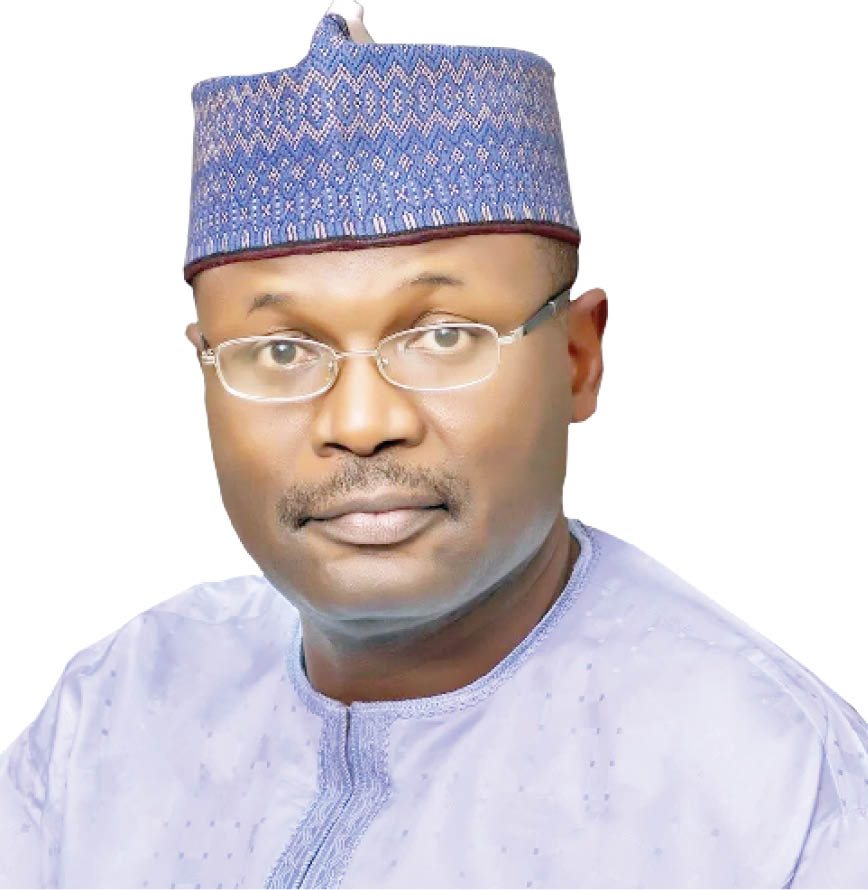INEC fixes date to release 2023 elections timetable
The Independent National Electoral Commission (INEC), on Wednesday, disclosed that the timetable for the 2023 general elections would be released in November 2021. INEC chairman, Mahmood Yakubu, stated this at a public hearing on the Electoral Offences Commission (Establishment) Bill, sponsored by Senator Abubakar Kyari. Abducted Benue university students regain freedom Insecurity: Buhari seeks US […]

Prof. Mahmood Yakubu, INEC chairman
The Independent National Electoral Commission (INEC), on Wednesday, disclosed that the timetable for the 2023 general elections would be released in November 2021.
INEC chairman, Mahmood Yakubu, stated this at a public hearing on the Electoral Offences Commission (Establishment) Bill, sponsored by Senator Abubakar Kyari.
- Abducted Benue university students regain freedom
- Insecurity: Buhari seeks US help, wants AFRICOM relocated to Africa
Yakubu, however, said there must be clarity and certainty about the electoral legal framework to govern the conduct of the 2023 general election before the timetable would be released.
He, therefore, appealed to the National Assembly to expedite work on the electoral act amendment bill currently before it.
He said: “I will like to reiterate our appeal to the National Assembly for the expeditious passage of the Electoral Offences Commission Bill and the pending review of the Electoral Legal Framework generally.
“We are confident that the National Assembly will conclude work on the legal framework in earnest.
“The commission is anxious to know the legal framework to govern the conduct of the 2023 general elections.
“By the principle established by the commission, the 2023 general elections will hold on Saturday, 18 February 2023 which is exactly one year, nine months, two weeks and six days away from today.
“We hope to release the timetable for the general elections immediately after the Anambra governorship election scheduled to hold on the 6th of November 2021.
“In order to do so, there should be clarity and certainty about the electoral legal framework to govern the 2023 general election.
“We are confident that the national assembly will do the needful and to do so in earnest.”
60 convictions
On the prosecution of electoral offenders, the INEC boss said the Commission, since the 2015 general elections, had secured 60 convictions out of the 124 cases filed in court.
“We will like to see more prosecution offenders not just of ballot box snatchers and falsifiers of the result of the election but most importantly, their sponsors.
“We look forward to the day when highly placed sponsors of thuggery including chieftains of political parties and candidates will be prosecuted. By doing so, we believe that we will send an even bigger message.
‘The Bill’
The bill is coming 13 years after the recommendation of the Justice Uwais Committee.
It seeks to establish Electoral Offences Commission for the investigation of electoral offences and of electoral offenders in Nigeria.
The current justice system for electoral offences is weak because INEC, which is saddled with overseeing the electoral process, is the same body saddled to prosecute electoral offenders.
However, the power of INEC to prosecute is activated by a recommendation by a tribunal handling an election petition.
The Chairman of the Senate Committee on INEC, Senator Kabiru Gaya, said between the 1999 and 2019 elections, the country had witnessed an increase of electoral violence across the country.
The increase, he said, did not correspond with the number of prosecutions and convictions of electoral offenders.
He said the “bill will no doubt change the narrative of our electoral process, a process which is conditioned by a situation where violators of Electoral Laws over the years are not deterred neither have they been effectively prosecuted.”
Meanwhile, the Office of the Attorney General of the Federation and Minister of Justice faulted some sections of the bill.
A representative of the minister, Mr Abah Anthony, said “Section 6 and 7 of the proposed Bill — the Functions and Powers, propose to empower the Commission to prosecute electoral offences — appear to run contrary with section 174 of the Constitution on the powers of the Attorney-General of the Federation with respect to all public prosecutions.
“This explicit proposal would amount to a duplication of powers.
“At best, the Bill may propose for the power to prosecute electoral offences to be obtained via a fiat of the Attorney-General of the Federation or of the State, where applicable.”
